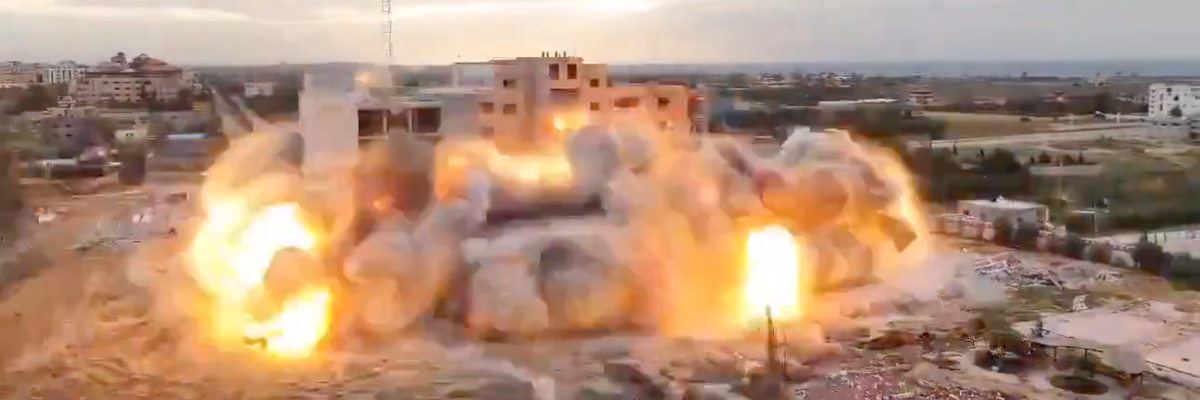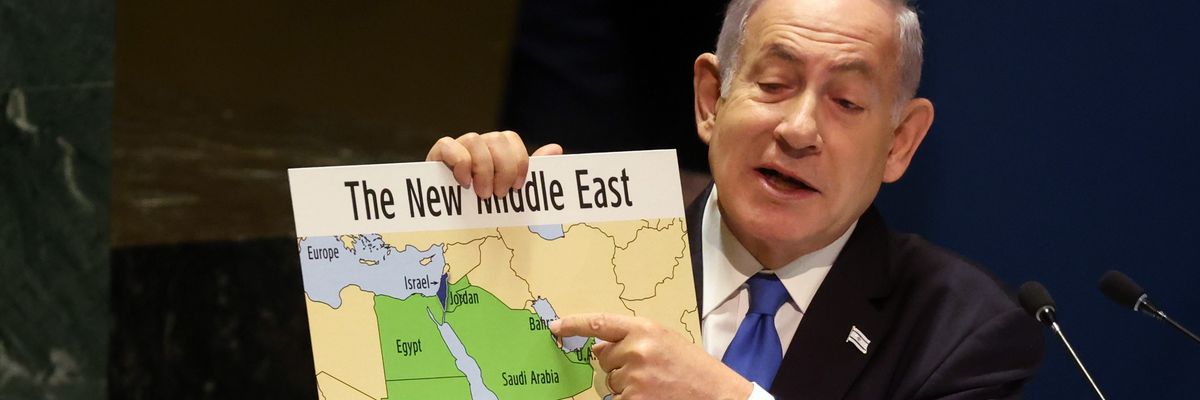Activists in Panama defeated a mining project. Now the state is criminalizing them.
By Michael Fox ,
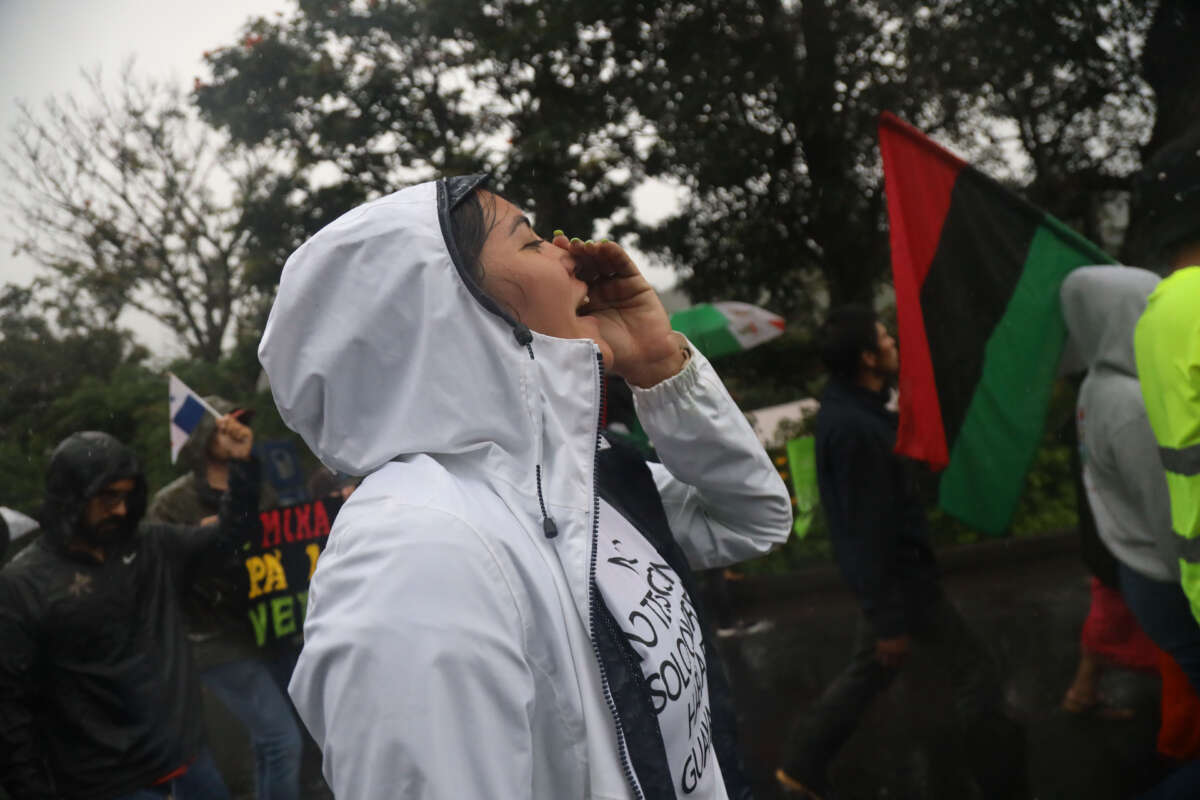
Damaris Sanchez is a soft-spoken environmentalist from the hills of Western Panama. She lives in an area called Cerro Punta in the Tierras Altas, or Highlands, of the state of Chiriquí. She was born and raised on the flanks of Panama’s only volcano. Her family has farmed here for generations. She’s also the coordinator of Panama’s National Network in Defense of Water.
“My family has been closely linked to the Barú Volcano National Park since I was little,” she told Truthout. “We had a farm there at that time, when it wasn’t yet a park. My father started working in the area and he still tells the stories of how they developed the farms here in the region.”
Sanchez is 53. Dark hair, neatly pulled back. Glasses. Grey sweatshirt. She speaks clearly and passionately about the issues she cares for: the local community. The land. The water. The environment.
Get our free emails
Email*
“The children of my family — my generation — have had to look at the other side of caring for the land, and tried to contribute to protecting the environment,” she said.
Sanchez was a vocal figure in the anti-mining protests that shut down portions of Panama late last year, and forced the country to rescind the contract for the largest open-pit copper mine in Central America in November.

New Book Captures Revolutionary Spirit of Latin American Liberation Movements
The book documents daily life on the margins of movements for social and economic justice in photographs and poetry.
By Matt Dineen , TRUTHOUTNovember 25, 2023
Now, she is being taken to court.
She is one of 21 people being accused of terrorism in Panama’s western state of Chiriquí and roughly 30 people around the country who are facing charges. The cases against the activists are part of what Panamanian social movement leaders are describing as an unprecedented wave of criminalizations, on the backs of widespread police repression during the country’s recent month-long protests.
“They are trying to tell people, OK, this time you won, but next time we are not going to even let you out on the street, because we are going to prosecute and criminalize anyone who does so,” said Sanchez.
The Protests
The protests kicked off on October 23, three days after Panama’s congress approved a new mining contract with the Canadian firm First Quantum Minerals. President Laurentino Cortizo signed it into law only hours later.
The government praised the new contract, saying it would create windfall profits for the state. Cortizo vowed to use the funds to shore up the social security system and improve pension benefits.
“The contract ensures a payment to the state of $395 million for 2022 and a minimum payment of $375 million a year, for the next 20 years,” Commerce Minister Federico Alfaro told a local news outlet at the time. “If you can compare this with what the state was receiving before, which was $35 million a year, it’s a substantial improvement to the past.”
First Quantum Minerals began operations on the Cobre Panama mine in 2019, and has extracted roughly 300,000 tons of copper a year ever since. The mine accounted for roughly 75 percent of Panama’s exports and 5 percent of the GDP.
But Panamanians did not care. They said the contract was a handout to a foreign company and an attack on Panamanian sovereignty. That’s a big issue in Panama, which fought for most of the 20th century to remove the United States from its control over Panama’s Canal Zone region.
Panamanians also said they feared for the mine’s impact on the country’s environment and water reserves, amid increasing drought.
“We are going to fight to the death for our environment, because without our environment, here in Panama, we are nothing,” 20-year-old student Yuleysi Vargas told Truthout. She joined thousands on the streets of Panama City.
Unions, students, teachers and Indigenous groups marched across the country. The country’s anti-mining movement “Panama Is Worth More Without Mining,” composed of more than 30 Panamanian social and environmental groups, led the way. They accused the government of handing over part of Panama to a foreign company. They promised to remain in the streets until the contact was cancelled. And they kept their word.
Protesters set up roadblocks across the country. They shut down major portions of the Pan-American Highway — the country’s main thoroughfare running east and west. The barricades blocked shipments of products and goods. In Panama City, vegetables and produce disappeared from shelves. In the states of Bocas del Toro and Chiriquí, fueling stations ran dry, and then propane. Grocery shelves emptied out. School classes were canceled, or went online
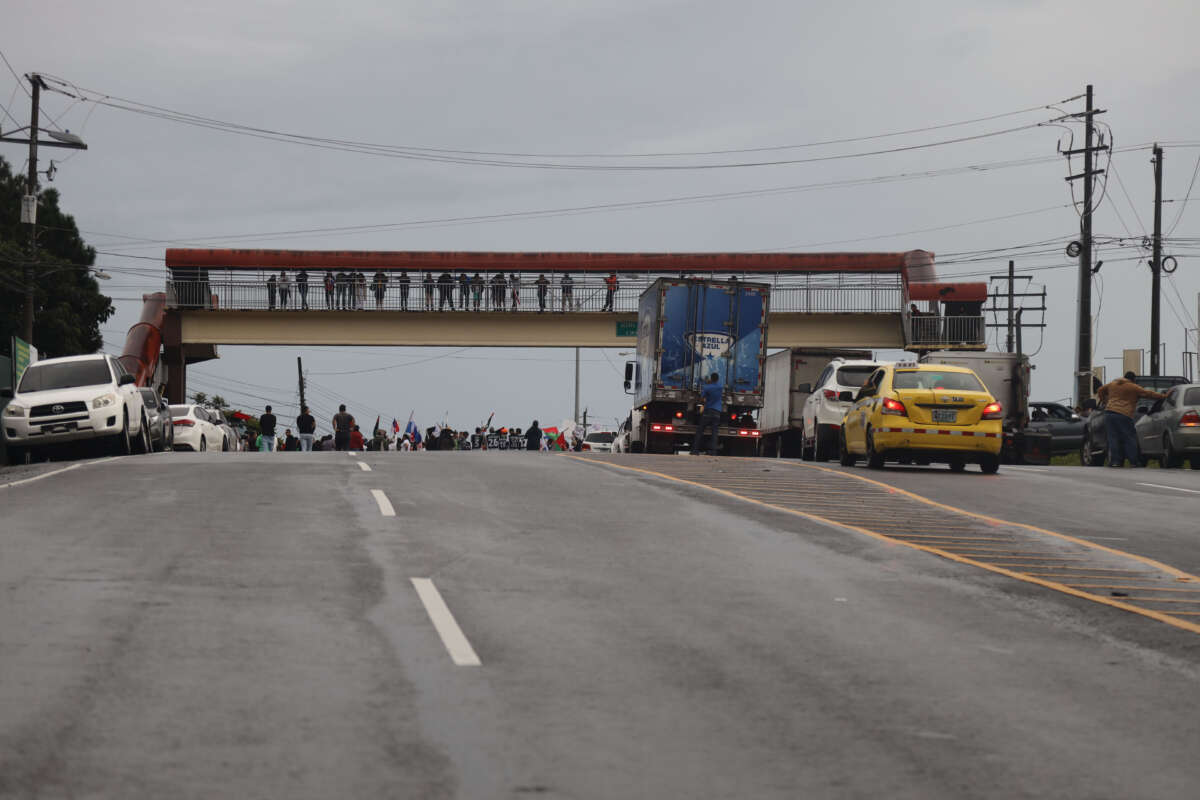
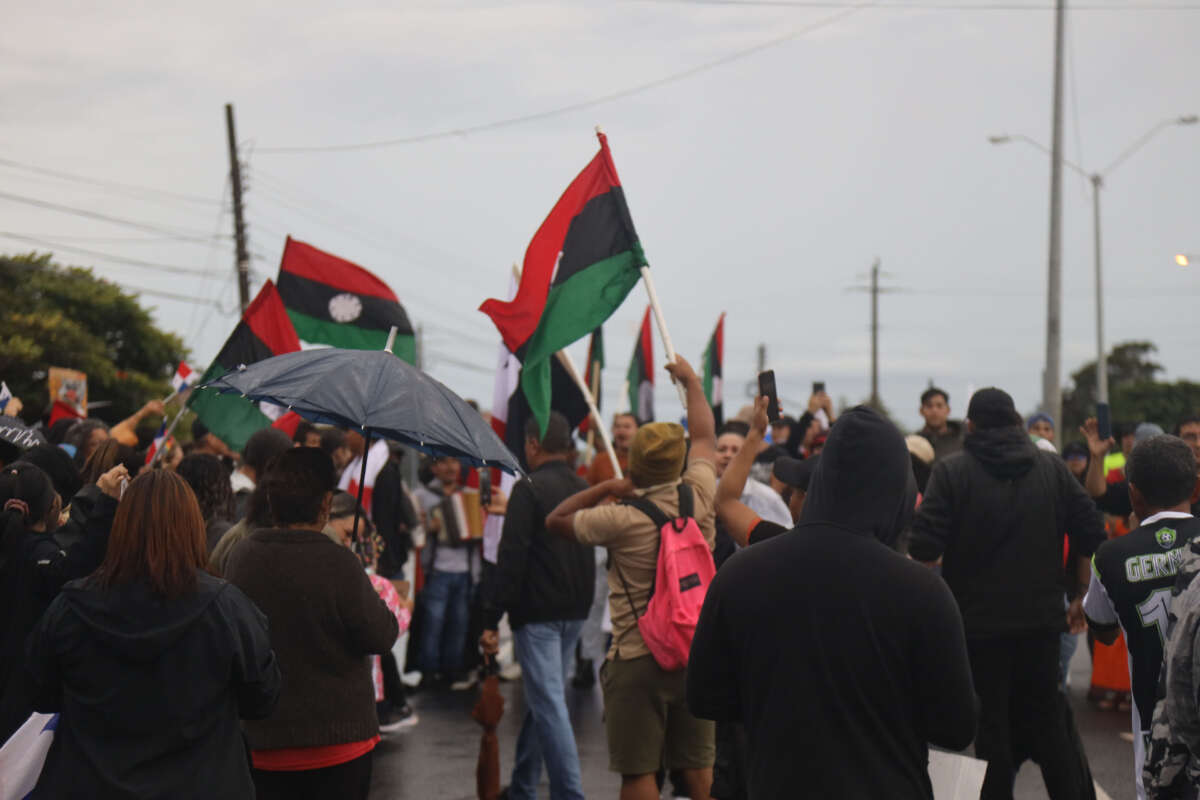
Protesters in Damaris Sanchez’s area of Tierra Altas, Chiriquí, held strong. They refused to allow all but ambulances and emergency services through their highway roadblock for more than a month.
“What would it mean that if this transnational company were able to achieve all of these advantages and benefits from the state? There would be no way to stop another transnational company interested in the mining deposits in the Barú Volcano National Park or anywhere else in country,” said Sanchez. “We said, if we don’t stop this now, there will be no way in the future to stop any other interests in metal mining in Panama. That is why we took action.”
They finally lifted the road block after a landmark Supreme Court ruling on November 28 that declared the new mining contact unconstitutional.
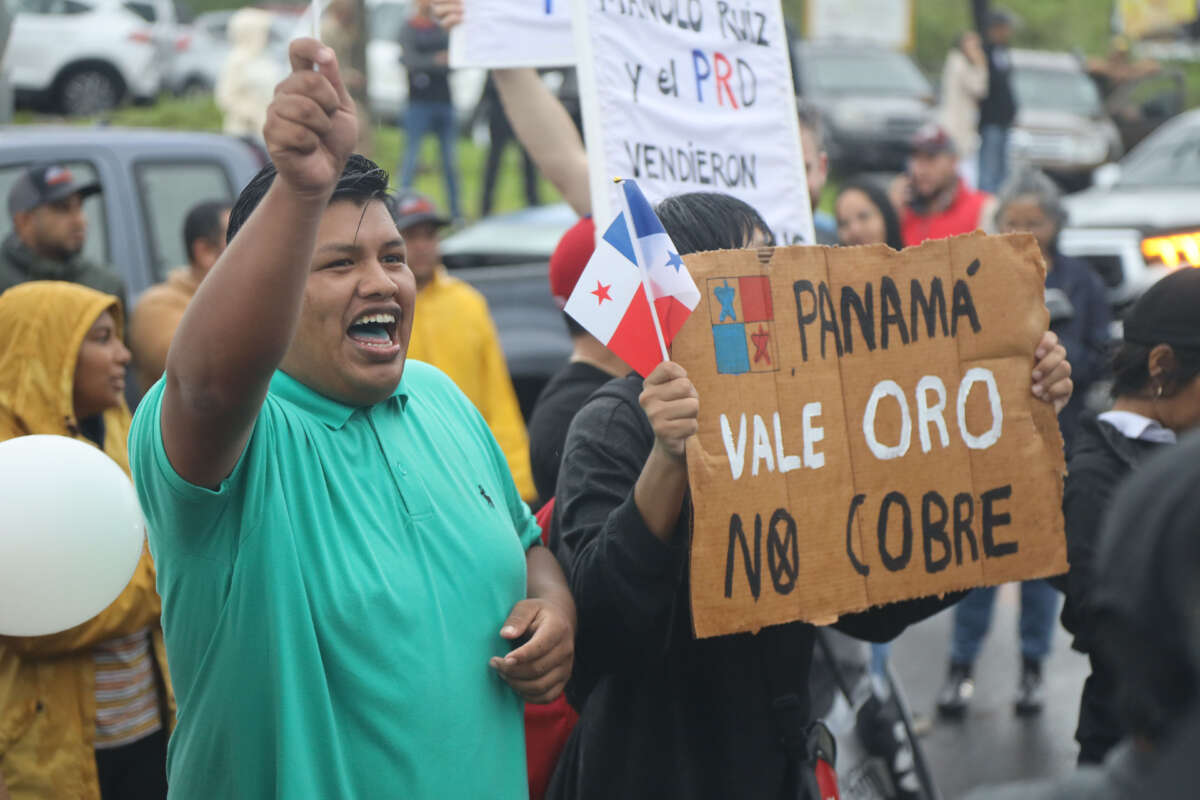 MICHAEL FOX
MICHAEL FOX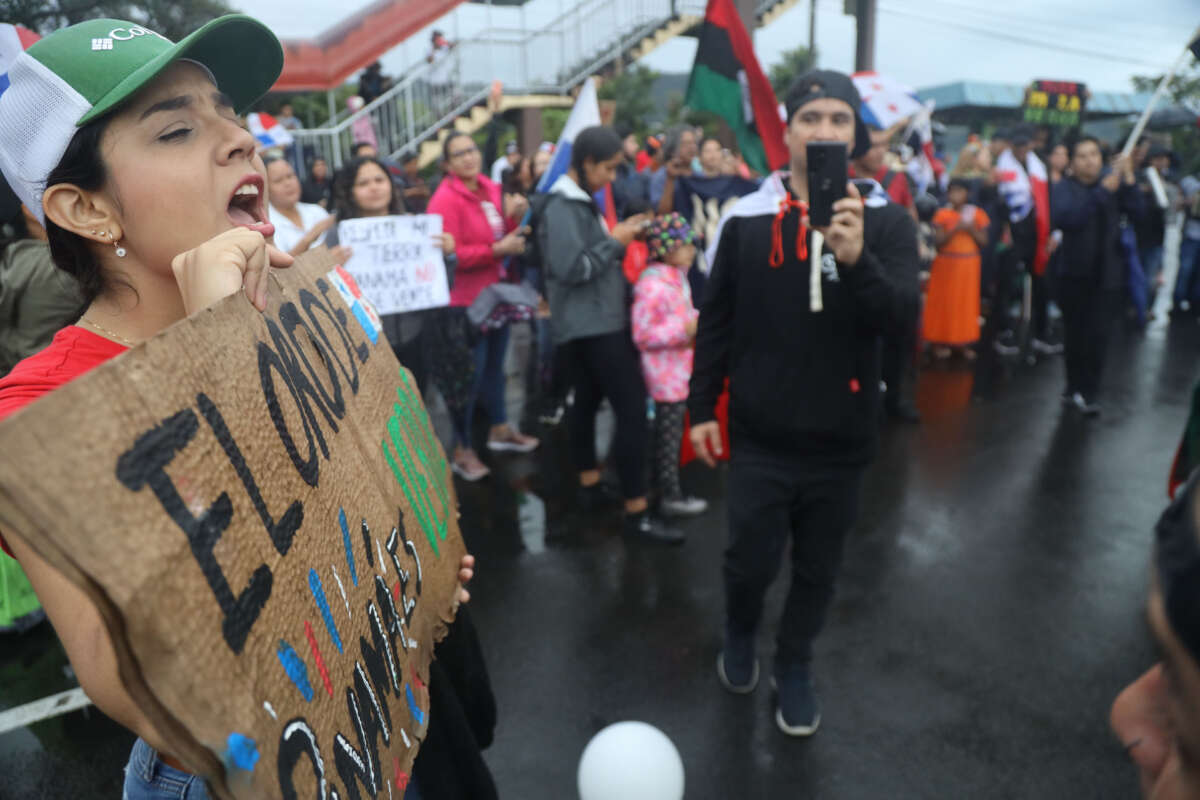
Businesses Hit Hard
Members of Panama’s business sector said the roadblocks cost the country $1.7 billion, in just the first four weeks of protests. Local restaurants, hotels and businesses have been hit hard.
“The situation is very difficult for us, Panamanians, as a result of the nationwide roadblocks,” small business owner Javier Antonio Pinzón told Truthout in mid-November, a few weeks into the protests. He owns a restaurant and hotel in the Chiriquí mountain town of Boquete. It was supposed to be the beginning of the high tourist season there, but due to the protests and road closures, there were only a handful of patrons each day. No hotel guests. No reservations.
“We aren’t in agreement with this open-pit mine, nor with this contract that was negotiated. But we don’t support these roadblocks,” he said. “At this moment, the province of Chiriquí is out of gas. Out of propane. Without any inputs for the agricultural sector. The losses for the agricultural sector are incalculable. And this is going to have enormous consequences for tourism, for example, because of the reputational harm that these protests are causing internationally.”
The Chamber of Commerce of Tierras Altas, Chiriquí, is the entity that has lodged the criminal complaint against Damaris Sanchez and the other 20 individuals in the state of Chiriquí.
“From our firm position in the defense of rights and the search for fair solutions, I call on all companies, businesses and entrepreneurs in Tierras Altas to join us in this crucial effort,” said Chamber of Commerce President Maru Gálvez. “Together, we can strengthen the rule of law and preserve order in our country, which is essential to the prosperity and stability of our communities and our economy.”
They accuse the activists of crimes against economic assets, damages, crimes against collective security, terrorism and unlawful association.
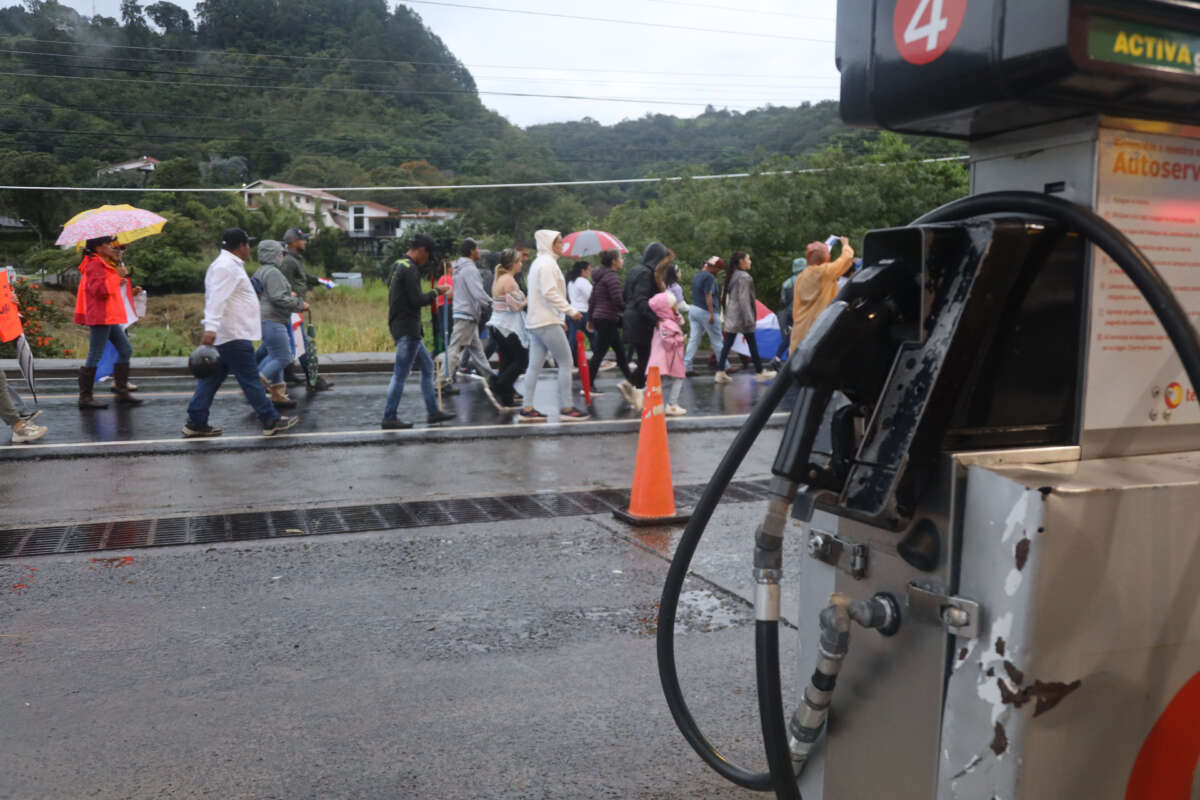
Truthout reviewed a copy of the criminal complaint. In it, lawyers for the Tierras Altas Chamber of Commerce write, “In an organized manner, they conspired to disturb public peace and intimidate the Tierras Altas community through threats,” to force the government to revoke the contract with the mine.
Panamanian law experts say this crime of “unlawful association,” in particular, has historically been used by governments across the region in order to criminalize social protest.
Criminalizing Protest
“The criminalizations are efforts by the Panamanian state to try to punish the protesters,” said Celia Sanjur, a sociologist, journalist and longtime Panamanian human rights activist. “They are looking for ways to punish the population, to punish them and above all, to scare them so that they don’t do it again. But they won’t be successful. The people understand what they’re after.”
Sanjur says that, particularly in Chiriquí, business owners and the state want to “make a clear sign that protests like these road closures will not be tolerated. There will be punishment.”
“And that is why we need to send them all of our solidarity,” she said.
Groups have heeded that call. The Panama Is Worth More Without Mining movement has denounced the criminalizations and helped spread the word about the injustice of the cases. It is also supporting with the legal defense of some of its members who are accused.
Lilian Guevara is a member of the anti-mining movement in Panama and the executive director of the Panama Environmental Advocacy Center, a Panama City-based NGO that works on environmental issues across the country. She says the country has “not seen the selective criminalization of social leaders like this” since the dictatorships of Omar Torrijos and then Manuel Noriega in the 1980s.
“Now these people have criminal charges against them, accusations or complaints. And they are very prominent people with careers of social struggle, human rights defenders, environmental defenders. Teachers. They could not be further from terrorism and illicit criminal association,” she said.
This issue has been getting attention. In mid-December, a handful of Panamanian lawyers and law professors met with Panama’s Office of the Attorney General to express their concerns at the level of criminalization, among other issues. Prominent constitutional law professor, Miguel Antonio Bernal, says he left the meeting more worried than before.
“The reality is that we are faced with a group of officials, both in the judicial body and the public ministry, who enjoy an inexcusable ignorance in terms of what human rights are and their obligation as authorities and especially in the case of the Public Ministry, to respect and not to persecute,” Bernal told a local TV outlet. “We can’t continue living in a society where those who participate in demonstrations and protests are criminalized.”
Panama’s business sector blamed President Cortizo for allowing the protests and blockades to continue throughout the country and for not taking a heavier hand to remove them from the streets. But in and around Panama City, state forces cracked down hard against those on the streets.
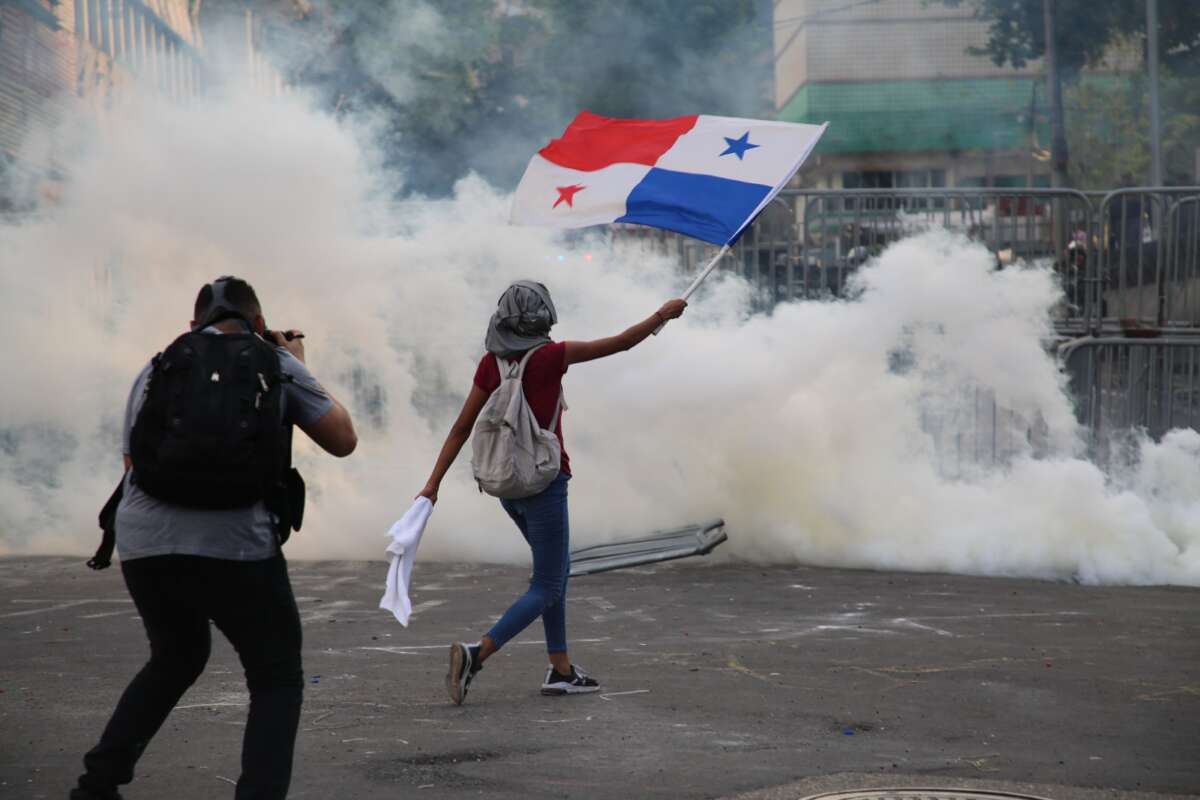
Police Repression
More than a thousand people were arrested — some for vandalism — in just the first few weeks of protests.
“There was daily repression,” said Guevara, “especially against the tens of thousands of young people in the capital. At the University of Panama, the student movement was besieged without fail every day. Some communities in eastern Panama, such as Pacora, the community was besieged and attacked with tear gas bombs. The police response was disproportionate.”
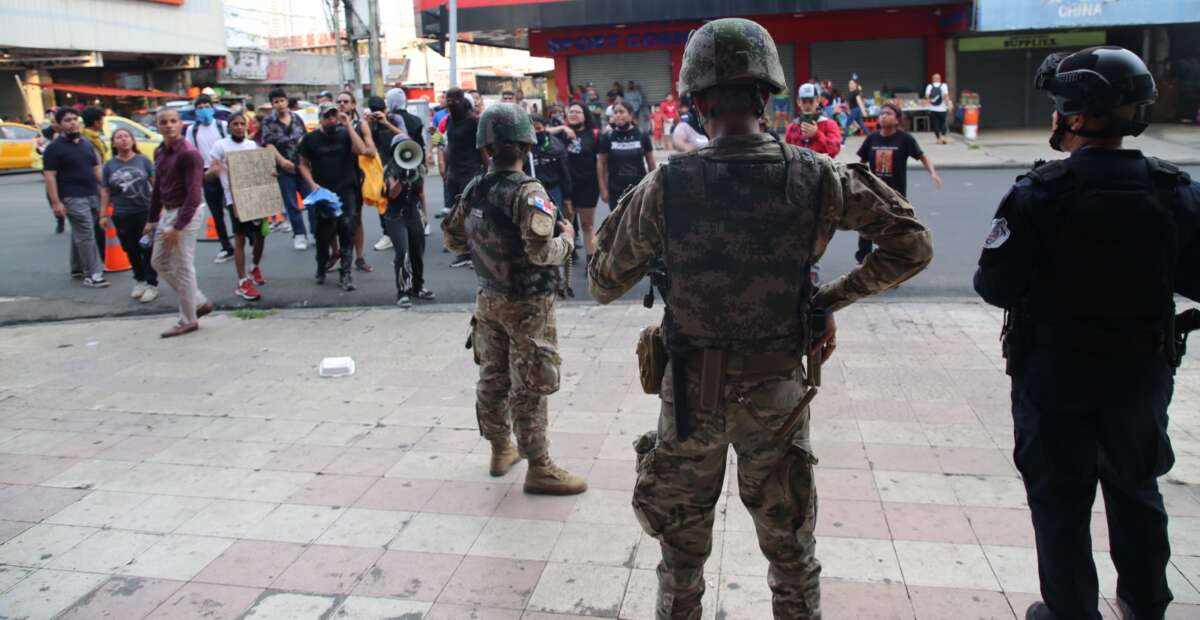
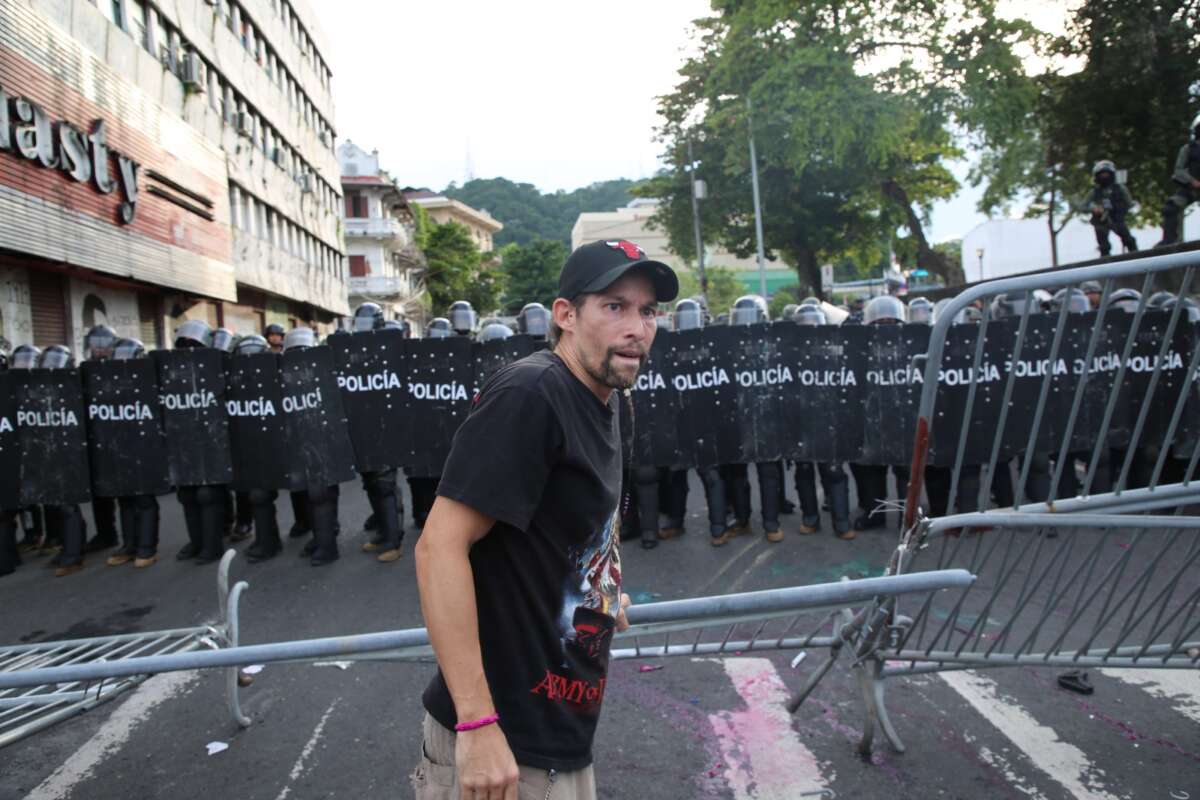
Numerous social media videos went viral during the first weeks of the anti-mining protests showing rounds of tear gas canisters being shot into crowds at rapid fire and police pushing protesters back with rubber bullets.
Aubrey Baxter is a photographer and an environmental activist who lost an eye after an officer fired at him multiple times at point-blank range with rubber bullets during one of the protests in October. He was not the only one shot in the head by a rubber bullet during the protests.
In video from moments after the attack, he’s sitting on the ground, his face and shirt covered in blood.
I met Baxter in a Panama City park in December. Today, he wears an eye patch. He’s had surgery, seen doctors and therapists. He’s still trying to deal with the reality of his new life with only one eye.
“I can try and put it into words. But it’s impossible. Feeling it is something else,” he said. “It’s a mutilation.”

Baxter says he feels an even deeper connection with the mine that the protesters helped to stop.
“Every time I see the graphic image of the open-pit hole in the ground,” he said, “I see myself, without my eye.”
The police force released a message saying they weren’t responsible for the impact that knocked out Baxter’s eye and instead blamed it on violent protesters. Baxter has lodged a criminal complaint against the force.
“We are searching for justice. So that this case does not go unpunished. So that other cases like mine do not go unpunished,” he said. “So that we create a precedent to respect people’s human rights.”
“I lost an eye. But the country has opened its eyes,” he said. “And I feel that in a way my case has helped to unite people in a sense of not allowing harm to each other.”
Four people were killed in the protests. Two were shot by an angry driver who wanted to pass through the roadblock. Another was run over at a roadblock along the Pan-American Highway in Chiriquí, the state where Damaris Sanchez and others carried out their roadblock.
Despite the resolution on the streets, and the Supreme Court decision declaring the mining contract unconstitutional, First Quantum Minerals and foreign companies involved in the mine plan to make Panama pay. First Quantum Minerals and two other foreign companies — a South Korean mining firm that had stake in the project and another Canadian firm, which had a precious metals streaming deal with the mine — have submitted notices to take Panama to arbitration proceedings over the cancelation of the mine.
Such arbitration threats are a major tool that mining firms up and down the hemisphere consistently use to keep countries in check and influence local policies and decision-making. These arbitration hearings could force the Panamanian state to fork over millions of dollars to these foreign companies in payment for supposed lost profits. But the arbitration is a process that can take years. It’s decided behind closed doors, outside of Panama and with no right to appeal from the Panamanian state.
“Today’s ‘trade’ agreements grant new rights to multinational corporations to sue governments before a panel of three corporate lawyers,” writes the consumer advocacy group Public Citizen about arbitration hearings proceedings like these. “These lawyers can award the corporations unlimited sums to be paid by taxpayers, including for the loss of expected future profits, on claims that a nation’s policy violates their rights.”
In other words, they’re very hard to fight. Anti-mining activists in Panama are trying to decide what can be done. At the same time, activists, like Sanchez, say they will do what is necessary to fight the accusations against them.
“Not only at the level of Panama, but throughout all of Latin America, transnational companies have a very powerful influence,” said Sanchez. “The mining issue here in Panama took a huge leap forward because no one expected that such a small country could achieve a victory of this type.”
MICHAEL FOX is a Latin America-based multimedia journalist and host of the podcast “Brazil on Fire.” He was previously editor of NACLA. He tweets at @mfox_us.


